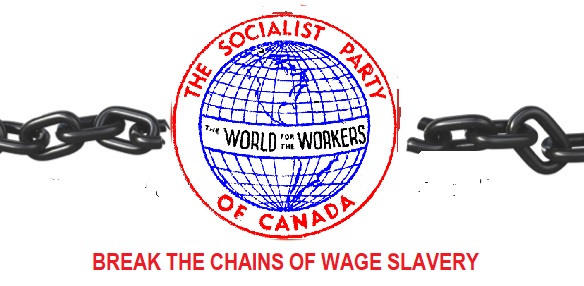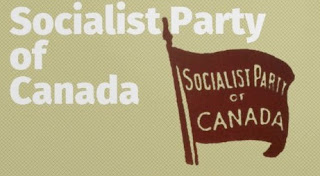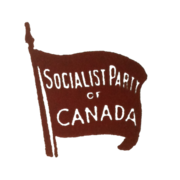We reprint a discussion paper circulated in the late 60s. Perhaps a bit dated, it nevertheless remains of interest when we saw Sinn Feinforming part of Northern Ireland's government when we see the Trotskyist parties forming electoral pacts. From disparaging name-calling of our organisation as the Small Party of Good Boys and accusations of parliamentary cretinism thrown at us, it appears in many ways that the Left are slowly accepting our position as their own. But the use of Parliament to achieve socialism is a position and a debate within the Socialist Party that has evolved. We are not a monument but a movement.
Now Manchester branch takes the view that the Socialist Party is absolutely correct in maintaining that the most readily available method the workers have for capturing political power is by using their votes. Manchester branch also believes that the Party has the arguments to demolish the sort of objections to our policy which we have given examples of above. However, Manchester members do not think that the Socialist Party always marshals its arguments for a revolutionary use of parliament in the most effective manner possible to back up our case. In other words, the fact that our ideas cut so little ice with our opponents may not simply be due to their bloody-mindedness (which is often the explanation which members too readily fall back on), but could in fact be due to some defect in our own approach. We, therefore, suggest that the 1969 Delegate Meeting could usefully examine the way in which the Party presents its case on parliament and this document is intended as a basis for such a discussion.
But before we elaborate some of the views of Manchester branch we think it important to emphasize one point in particular. Party members will be aware that since the 1950's the Communist Party has changed its line completely and that its British Road to Socialism pamphlet commits it to "the building of a socialist society by peaceful means" (pp. 28-9).
Manchester branch suggests that over the years two distinct lines of argument have grown up to justify the parliamentary strategy of the Socialist Party. The first, for want of a better term, we will call the constitutional argument. To take an example -
"Parliament is the centre of power in Great Britain. It makes the laws and provides for their enforcement" (Questions of the Day, 1942 edition p.73).
It is worth noting the way in which this particular pamphlet proceeds from the statement above (with which we have no quarrel -- by the way) to the explanation "of how necessary it is for the workers to obtain control of Parliament before attempting to uproot the existing foundations of society".
"The armed forces too are only kept in existence by the yearly voting of supplies in Parliament. The Army Council controls the Army, but, as Sir John Creedy, Permanent Under-Secretary of State for War, showed in his memorandum to the Civil Service Royal Commission, December 1929, the Secretary for War, who is a member of it, is supreme and is solely responsible to King and Parliament. The Permanent Under-Secretary is solely responsible to the Secretary for all internal finance.
The Privy Council has no legislative authority; cancellations from it and appointments to it are at the discretion of the Prime Minister. Privy Council proclamations are not made at full meetings, but where the presence of two or more members is arranged by the Cabinet. In practice not more than four members are summoned, and rarely is anyone invited to attend a Council meeting who is not an active Cabinet member. It is executive in those matters only where the Cabinet does not require Parliamentary authority.
Marriott ("English Political Institutions") adds the following relating to the Admiralty:
'The Board of Admiralty now consists of six Lords Commissioners of the Admiralty, a Financial Parliamentary Secretary, and a Permanent Secretary. The responsible minister is the First Lord, invariably a civilian and a member of the Cabinet'. 'The Board meets at least once a week, and is in a very real sense responsible for the first line of National Defence, though in a technical and parliamentary sense the First Lord has undivided responsibility."
A similar organisation obtains in the Air Force, the Air Minister being the responsible official.
The above shows how complete and secure is the grip Parliament has upon the armed forces ..." (Questions of the Day, p.76)
This argument is repeated in numerous other places as well.
"Parliament provides the money without which no navy, army, or air force can be equipped or maintained. Parliament, which pays the piper, calls the tune to which Jack Tar and Tommy Atkins must dance. The moral is plain: the working class must organise for the capture of Parliament" (Principles and Policy, 1956 p.25).
"Parliament votes the money to keep the police and armed forces in being, decides whether the forces are to be reduced, expanded, or abolished. And Parliament in the end says whether those forces shall be used against any object of capitalist fear, greed or malice" (The Case for Socialism, 1962 p.40)
Although we have taken these examples from pamphlets issued in the '40s, '50s and '60s, looking back one can see that -- even though it originates from an earlier period - this line was mainly reinforced in the 1920s when the Party was seeking to combat the barricade mentality of the bolsheviks. Numerous issues of the Socialist Standard during that decade carried variations on the argument presented above. But, as we mentioned before, there is another approach to this question which the Party has also made use of to explain its call for a revolutionary use of parliament. This we will call, again for want of a better term, the consciousness argument. It puts the emphasis not on the supposition that the army, police force etc. would have to obey a workers' parliament for legalistic or constitutional reasons, but on the assessment that by the time of the socialist revolution a majority of the armed forces will be socialists, like the rest of the working class.
For example:
"Further, our correspondent must have overlooked the fact that by that time the armed forces -- drawn from working class homes -- would be mainly sympathetic to the Socialist viewpoint. Given the abandonment of democratic methods by the Government of the day after the Socialist Party had at an election received a majority of the votes, the armed forces would no longer be a dependable instrument for the capitalist minority, and would, in fact, help, not hinder, the majority in their endeavours to secure control of the machinery of Government. But that eventuality -- the armed forces helping the Socialist working class to gain control -- is quite different from the Communist Party policy of a minority fighting the armed forces"
(Socialist Standard, April 1930, p.116).
"The working class will support the measures taken by a socialist majority in parliament not for any legalistic reasons but because, as conscious socialists, they will understand what steps are being taken and why, because they will have sent the delegates to parliament to carry out their wishes. And the same argument applies to the armed forces and the police. They will be available to back up the decisions taken by the workers not because they have to obey the instructions of parliament but because a majority of them -- as with the rest of the working class -- will be socialists" (Socialist Standard, August 1969, p.124).
Manchester branch takes the view that the constitutional argument has a number of weaknesses. Although we do accept that parliament is the seat of power in many advanced capitalist countries, such as Britain, we are equally certain that it is a tactical mistake to get bogged down in attempts to prove this. Certainly one can refer to numerous authorities who do think this way (as the Questions of the Day extract above makes enormously heavy weather of doing) but one must also admit that there are other serious investigators who suggest that the trend is in an opposite direction (e.g. "Today, a century after Mill, it is certain that Parliament cannot even pretend to function as a sovereign body according to the Blackstone-Mill formula." -- Laurence Clark in On Parliament and the Parties, 1964).
"The policemen stormed the Assembly chamber, assaulted members and Ministers, and finally threatened to kill Mr. Jyoti Basu, the Deputy Chief Minister, who is in charge of the police.
As the Legislature adjourned in confusion and panic, the policemen surrounded Mr. Basu's office, refused to allow anybody in or out, and chanted: "We want Basu's blood." The affair continued for several hours. Mr. Basu decided not to use force against the policemen, and they agreed to disperse on learning that a big procession of supporters of the United Front Government was on its way to the Assembly" (Police Go Out for Blood, The Guardian, 1.8.69).
Manchester branch suggests, then, that the Party should give greater prominence to the consciousness argument which, unfortunately, has tended to play second fiddle to our preoccupation with the constitution in the past. Leftwingers influenced by anarchist and bolshevik ideas genuinely find our case difficult to accept because they suppose that soldiers and state employees in general, due to their indoctrination, would not obey the instructions of a workers' parliament but would still respond to the orders of the capitalists. They claim that they could then be used to put down the revolution and this gives rise to further speculation about the need for workers' militia, by-passing parliament and so on. If the Socialist Party relies on arguments such as "The armed forces . . . are only kept in existence by the yearly voting of supplies in Parliament", it means that we are abandoning any chance of persuading these people that the socialist position is the correct one. But, if instead, we put the emphasis on that area of our case which really distinguishes the Party from all others (the need for working-class understanding of socialism) we can then argue far more convincingly along something like the following lines:
What they overlook is that oaths of allegiance to the queen and fancy uniforms do not inoculate workers against socialist ideas. It is quite illogical to assume that the wave of enthusiasm for socialism that would be sweeping through the working class as a whole would somehow miss out on that section which forms the bulk of the armed forces. Our evidence for this is the record of previous revolutions. The success of the bourgeois revolution in Russia in 1917 was guaranteed when the military, which for decades had brutally put down all opposition to the tsar, succumbed to the general revolutionary discontent and refused any longer to protect the old ruling class. If soldiers then took up the confused and contradictory slogans of the Bolsheviks, Mensheviks and SRs, how much more likely will they be to accept socialist policies put forward by workers like themselves organised in a mass socialist party?
Manchester branch, therefore, urges the Delegate Meeting (and Party members as a whole) to give this question of the revolutionary use of parliament urgent consideration. Our branch maintains that only by constantly deepening our analysis of capitalism and improving the way in which we present this analysis and the socialist alternative to the workers can the Socialist Party expect to extend its influence among the working class.
Manchester Branch, August, 1969.













